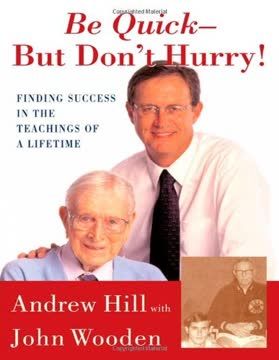Key Takeaways
1. John Wooden's Pyramid of Success: A Blueprint for Leadership
"The Pyramid of Success is the result of my trying to develop something that would make me a better teacher as well as give those under my supervision something to aspire to other than a higher grade in my English class or more points in an athletic contest."
Foundation of success. The Pyramid of Success, developed by John Wooden over 14 years, is a comprehensive framework for achieving personal and professional excellence. It comprises 15 fundamental traits, including:
- Enthusiasm
- Friendship
- Loyalty
- Cooperation
- Industriousness
- Self-control
- Alertness
- Initiative
- Intentness
Building blocks of character. These traits are strategically placed within the pyramid structure, emphasizing their interconnectedness and importance in building a strong character. The ultimate goal is to reach the apex, which represents competitive greatness, through the cultivation of these essential qualities.
Universal application. While originally designed for basketball, the Pyramid of Success transcends sports and can be applied to various aspects of life, including business, education, and personal relationships. It provides a holistic approach to success, focusing on both individual growth and teamwork.
2. Be Quick, But Don't Hurry: The Art of Balanced Action
"Life, like basketball, must be played fast—but never out of control."
Controlled speed. This principle emphasizes the importance of finding the perfect balance between quickness and control. In basketball and in life, being quick allows for seizing opportunities and staying ahead of the competition. However, hurrying often leads to mistakes and poor decision-making.
Mental and physical balance. Wooden stressed that true quickness stems from:
- Physical balance
- Mental balance
- Emotional balance
Without these elements, one might experience "activity without achievement," a state of frenzied action that yields little productive results.
Application in business. In the corporate world, this principle translates to making swift decisions while maintaining a clear head and considering all factors. It's about being responsive to market changes without sacrificing thoroughness and quality.
3. Focus on Effort, Not Winning: Redefining Success
"Don't permit fear of failure to prevent effort. We are all imperfect and will fail on occasion, but fear of failure is the greatest failure of all."
Effort as the true measure. Wooden believed that success should be defined by the effort put forth, not by the outcome. This approach reduces pressure and allows individuals to perform at their best without the paralyzing fear of failure.
Internal vs. external factors. By focusing on effort, individuals concentrate on what they can control (their own actions and attitudes) rather than external factors beyond their influence (like opponents' performance or luck).
Long-term perspective. This philosophy encourages consistent hard work and improvement, leading to better results over time. It also helps in building resilience, as setbacks are viewed as learning opportunities rather than failures.
4. Simplicity and Consistency: The Keys to Greatness
"The more you make things complicated, the more there is to learn. Keep things as simple as you can and you have a chance to do them better. I'd always rather do a few things well."
Power of simplicity. Wooden's coaching style was characterized by its simplicity. He focused on perfecting a few key plays and strategies rather than overwhelming his team with complex tactics. This approach allowed for:
- Mastery of fundamentals
- Consistent execution under pressure
- Reduced confusion and hesitation during games
Consistency breeds excellence. By maintaining a simple and consistent approach, Wooden's teams were able to perform at a high level consistently. This principle extends to business and personal life, where focusing on core competencies and maintaining consistency can lead to long-term success.
Avoiding overcomplication. In a world that often values complexity, Wooden's approach reminds us of the power of simplicity. By stripping away unnecessary elements, we can focus our energy on what truly matters and excel in our chosen fields.
5. Teamwork as a Necessity, Not a Preference
"Teamwork is not a preference, it's a necessity."
Synergy of collective effort. Wooden firmly believed that the success of any group depends on the cohesive effort of all its members. He instilled this value in his players, emphasizing that individual brilliance must always serve the team's goals.
Cultivating team spirit. Strategies Wooden used to foster teamwork included:
- Encouraging players to acknowledge teammates' contributions
- Emphasizing the importance of each role, regardless of playing time
- Insisting on unselfish play and ball movement
Beyond sports. In the business world, this principle translates to creating a collaborative environment where every team member's contribution is valued and aligned with the organization's objectives. It's about creating a culture where collective success trumps individual accolades.
6. The Power of Preparation and Perfect Practice
"Failing to prepare is preparing to fail."
Meticulous planning. Wooden was renowned for his detailed preparation. He spent hours planning each practice session, ensuring every minute was used effectively. This level of preparation:
- Maximized learning opportunities
- Instilled confidence in the team
- Allowed for smooth execution during games
Quality over quantity. Wooden emphasized that mere practice isn't enough; it must be perfect practice. He believed that practicing bad habits only reinforces them, while perfect practice leads to perfect execution.
Application beyond sports. In any field, thorough preparation and focused practice are key to success. This includes:
- Rehearsing presentations
- Anticipating potential challenges
- Continuously refining skills and processes
By preparing meticulously and practicing with purpose, individuals and organizations can significantly improve their performance and outcomes.
7. Leadership Through Teaching and Adaptability
"A good leader is first, and foremost, a teacher."
Leader as educator. Wooden saw his primary role as that of a teacher, not just a coach. He focused on:
- Breaking down complex concepts into manageable parts
- Demonstrating techniques and strategies
- Providing constructive feedback and corrections
- Encouraging continuous learning and improvement
Adaptability in leadership. Wooden understood that different individuals require different approaches. He adjusted his teaching and coaching style to suit the needs and personalities of his players, demonstrating that effective leadership involves flexibility and understanding.
Empowerment through knowledge. By focusing on teaching, Wooden empowered his players to make decisions on the court. This approach translates well to business, where leaders who educate and empower their teams often see better results and foster a more engaged workforce.
8. Integrity and Directness: The Cornerstones of Effective Leadership
"Be honest, direct, and willing to risk it all for your beliefs."
Unwavering principles. Wooden was known for his strong moral compass and willingness to stand by his principles, even when it was difficult or unpopular. This integrity earned him respect and trust from his players and peers.
Clear communication. Wooden believed in being direct and honest in his communication. He didn't sugarcoat his messages or avoid difficult conversations. This approach:
- Eliminated ambiguity
- Built trust within the team
- Set clear expectations for behavior and performance
Leading by example. By living his values and being willing to make tough decisions based on his principles, Wooden demonstrated true leadership. This approach is equally valuable in the business world, where leaders who show integrity and directness often inspire greater loyalty and commitment from their teams.
Last updated:
FAQ
1. What is "Be Quick—But Don’t Hurry" by Andrew Hill about?
- Personal and Professional Growth: The book is a memoir and management guide that blends Andrew Hill’s experiences as a UCLA basketball player under legendary coach John Wooden with his later success as a television executive.
- Wooden’s Teachings Applied: It explores how John Wooden’s coaching philosophies, especially the Pyramid of Success, can be applied beyond sports to business, leadership, and life.
- Lessons from Adversity: Hill shares his journey from disappointment as a benchwarmer to realizing the long-term value of Wooden’s lessons in his career and personal life.
- Practical Management Advice: The book distills Wooden’s principles into actionable “secrets” for building successful teams and organizations.
2. Why should I read "Be Quick—But Don’t Hurry" by Andrew Hill?
- Timeless Leadership Lessons: The book offers practical, time-tested advice on leadership, teamwork, and personal development, rooted in the teachings of one of the greatest coaches in history.
- Real-World Application: Hill demonstrates how Wooden’s methods translate directly to business, making it valuable for managers, coaches, and anyone leading a team.
- Personal Storytelling: The narrative is engaging, blending personal anecdotes with actionable insights, making the lessons relatable and memorable.
- Focus on Character and Values: The book emphasizes integrity, effort, and balance, providing a refreshing alternative to win-at-all-costs mentalities.
3. What are the key takeaways from "Be Quick—But Don’t Hurry" by Andrew Hill?
- Effort Over Outcome: Success is defined by the effort you put in, not just by winning or external results.
- Balance and Simplicity: Maintaining balance in life and keeping things simple are crucial for sustained success.
- Teamwork and Talent: The best teams are built with the right talent and a strong emphasis on teamwork, not just individual stars.
- Leadership as Teaching: Great leaders are first and foremost teachers who empower others and lead by example.
4. How does John Wooden’s "Pyramid of Success" feature in "Be Quick—But Don’t Hurry"?
- Foundational Framework: The Pyramid of Success is presented as the core of Wooden’s philosophy, outlining essential traits for personal and team achievement.
- Visual and Practical Tool: Hill explains how the Pyramid’s blocks—like industriousness, enthusiasm, and poise—are interconnected and applicable in any group setting.
- Life Beyond Sports: The book shows how the Pyramid’s principles extend to business, relationships, and personal growth.
- Emphasis on Character: The Pyramid underscores that true success is about character, not just results or accolades.
5. What does the phrase "Be Quick—But Don’t Hurry" mean in the context of Andrew Hill’s book?
- Act with Speed and Control: It means moving quickly and decisively, but without losing control or making careless mistakes.
- Balance of Urgency and Composure: The phrase encapsulates the need to be responsive and agile, yet always maintain balance and poise.
- Universal Application: Hill shows how this principle applies to sports, business decisions, and even daily life situations.
- Avoiding Activity Without Achievement: The book warns against confusing busyness with productivity—being quick is valuable only when it leads to meaningful results.
6. What are some of the "secrets" or key principles from John Wooden’s teachings highlighted in "Be Quick—But Don’t Hurry"?
- Talent and Teamwork: The team with the best players usually wins, but only if those players work together.
- Effort and Preparation: Focus on effort, not just winning, and remember that failing to prepare is preparing to fail.
- Simplicity and Consistency: Keep strategies simple and seek consistency rather than emotional highs and lows.
- Honesty and Directness: Make your “yes” mean yes, be honest, and be willing to risk it all for your beliefs.
7. How does Andrew Hill describe the impact of John Wooden’s leadership style in "Be Quick—But Don’t Hurry"?
- Empowerment Over Micromanagement: Wooden prepared his teams so thoroughly that his job was “almost over” once the game began, empowering players to take charge.
- Teaching by Example: Wooden led by modeling the behavior he expected, emphasizing integrity, punctuality, and respect.
- Not Focused on Popularity: He didn’t worry about being liked, understanding that tough decisions sometimes make leaders unpopular in the short term.
- Credit and Accountability: Wooden gave credit to others for success and accepted blame for failures, fostering loyalty and trust.
8. In what ways does "Be Quick—But Don’t Hurry" by Andrew Hill connect sports coaching to business management?
- Transferable Skills: Hill draws direct parallels between building a championship basketball team and managing a successful business.
- Managing Creativity: The book discusses how Wooden’s methods are especially relevant for managing creative, high-talent teams in fast-changing industries.
- Practical Examples: Hill shares stories from his television career where Wooden’s principles—like quick decision-making and valuing effort—led to business success.
- Adapting to Individuals: Just as Wooden adjusted his coaching to fit different players, Hill advocates for flexible management styles tailored to individual strengths.
9. What are some of the most memorable quotes from "Be Quick—But Don’t Hurry" and what do they mean?
- “Be quick—but don’t hurry!”: Move fast, but stay in control; don’t let speed lead to mistakes.
- “Failing to prepare is preparing to fail.”: Preparation is the foundation of success; neglecting it leads to predictable failure.
- “Make your ‘yes’ mean yes, and your ‘no’ mean no.”: Integrity and clarity in communication are essential for trust and effective leadership.
- “The team that makes the most mistakes…wins!”: Encourages taking initiative and learning from mistakes, rather than playing it safe and stifling growth.
10. How does "Be Quick—But Don’t Hurry" address the challenges of dealing with failure and disappointment?
- Redefining Success: The book teaches that failure is not the opposite of success, but part of the journey—success is about doing your best.
- Learning from Mistakes: Wooden encouraged mistakes of commission (trying to do something), not omission (failing to act), and saw them as learning opportunities.
- Personal Story: Hill’s own struggles as a benchwarmer and his later realization of the value in those experiences provide a powerful narrative on overcoming disappointment.
- Emotional Resilience: The book emphasizes maintaining balance and perspective, even in the face of setbacks.
11. What practical advice does "Be Quick—But Don’t Hurry" offer for leaders and managers?
- Hire and Fire Wisely: Get the best talent, but don’t hesitate to make tough personnel decisions when necessary.
- Promote Teamwork: Make teamwork a necessity, not a preference, and address individualism that undermines the group.
- Set Clear Rules and Expectations: Have a few important rules, enforce them consistently, and model the behavior you expect.
- Prepare and Practice: Insist on thorough preparation and “perfect practice,” not just going through the motions.
12. How does Andrew Hill’s personal journey in "Be Quick—But Don’t Hurry" illustrate the long-term value of Wooden’s teachings?
- From Resentment to Gratitude: Hill moves from feeling overlooked and disappointed as a player to recognizing the profound impact of Wooden’s lessons in his adult life.
- Reconnection and Healing: The book details Hill’s eventual reconnection with Wooden, leading to personal growth and emotional closure.
- Application Beyond Sports: Hill’s success in the television industry is directly linked to the principles he learned from Wooden, demonstrating their universal relevance.
- Mentorship and Legacy: The narrative underscores the importance of mentors and the enduring value of lessons that may not be appreciated until years later.
Review Summary
Be Quick - But Don't Hurry receives mostly positive reviews, with readers praising its valuable life lessons and insights into John Wooden's coaching philosophy. Many appreciate the book's balance of personal anecdotes and practical advice, finding it applicable to both sports and business. Some readers note the book's dated feel and wish for more in-depth analysis. Overall, reviewers commend the book for its timeless wisdom, inspirational content, and the unique perspective offered by Andrew Hill as a former UCLA player.
Similar Books

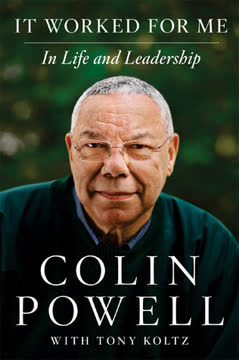


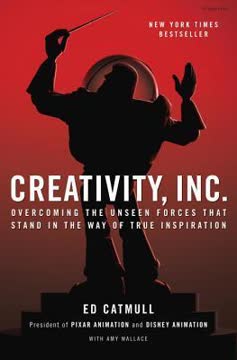


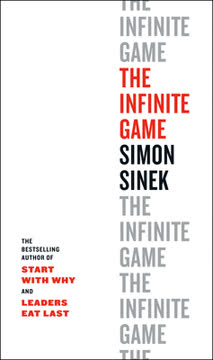

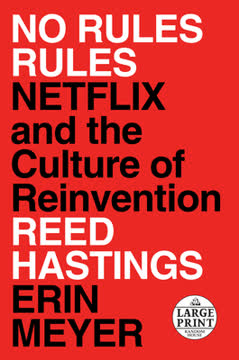
Download PDF
Download EPUB
.epub digital book format is ideal for reading ebooks on phones, tablets, and e-readers.
